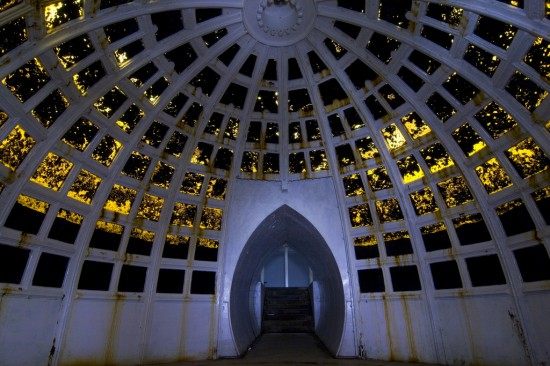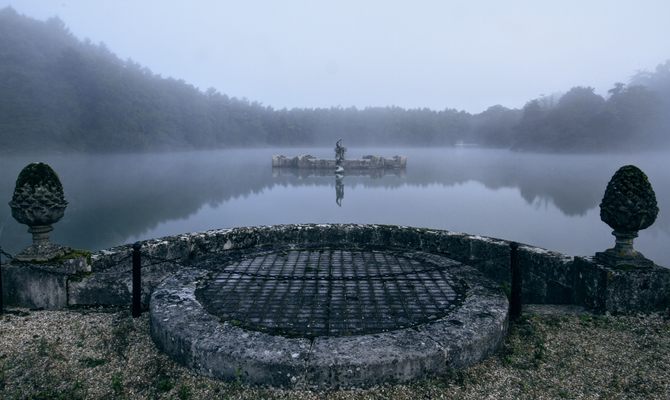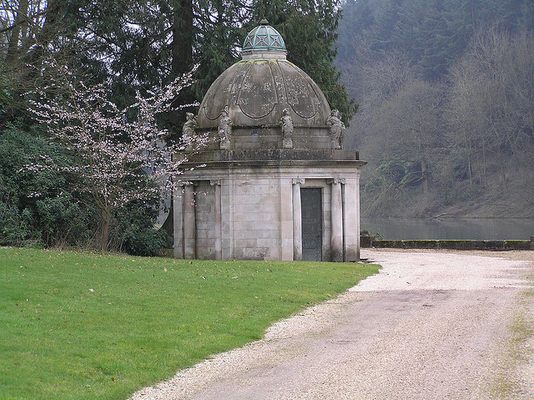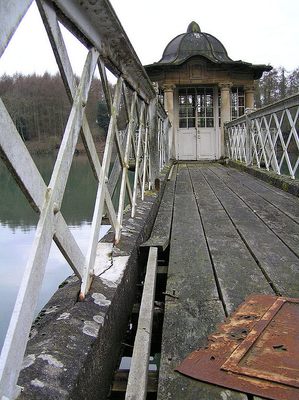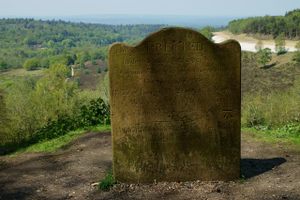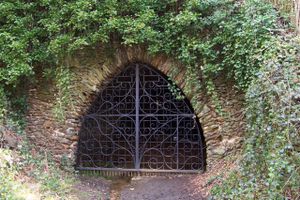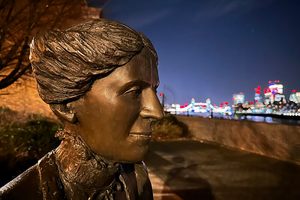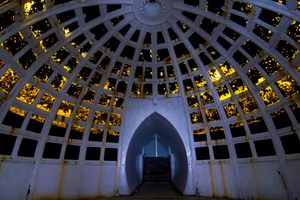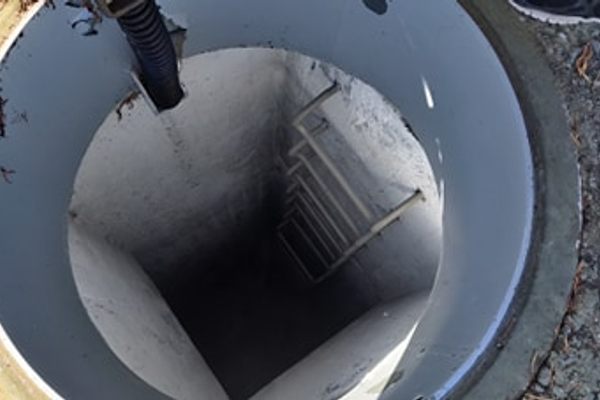About
Called an "Underwater Ballroom," in reality it was a subterranean smoking room built beneath a roof aquarium. Either way, it was spectacular, and like everything else on Whitaker Wright's Lea Park estate, it was doomed.
The main house on the estate was a 32-room mansion, and Wright had three artificial lakes constructed, the 9,000+ acres lavishly landscaped and reeking of wealth and means. Perhaps the most famous addition to the palatial properties was the underground conservatory/smoking room with aquarium windows, an epic statue seemingly rising out of the manufactured lake on the underwater dome that gave the glorious below-ground room a ballroom-like appearance.
Whitaker Wright wore many hats throughout the years, but when he finally settled into something, it was something big - big and illegal. London and Globe Company floated stock and bonds in the realm of the mining industry, and at first Whitaker's business dealings were simply misleading, not particularly criminal. The line was crossed into outright swindling when, after floating a large, unwieldy bond issue for the Waterloo Railway (an expensive endeavor quite out of his usual comfort zone) everything went south, straining his finances. To keep investors from seeing him struggle, he began to issue himself a series of loans and shuttle them between his companies. Unable to keep things afloat, in 1900 he fled, leaving his floundering investors in a panic, and single-handedly terrorizing London's exchange.
Now considered a scourge and a scoundrel, Wright was retrieved and forced to stand trial. Needless to say, it didn't go well. Convicted of fraud, he was sentenced to seven years in prison by the Royal Courts of Justice in 1904. In a court anteroom, Whitaker Wright took his own life by swallowing a cyanide pill immediately after sentencing, and was found dead on the floor with a revolver in his pocket—assumed to serve as a backup in case the cyanide failed to finish the job.
Wright did not face public disapproval alone—his estate actually attracted the ire of fellow countrymen as well, with its extensive acreage and resource-sucking extravagance. Once he died, the estate was auctioned off, much of it purchased by Irish shipbuilder and businessman William Pirrie (of Titanic fame), who changed its name to Witley Park and extended the property to include a deer park.
In 1952, the mansion was destroyed in a fire. While new houses have been built, the landscaped park and the now ancient-looking ballroom remain.
Related Tags
Know Before You Go
Witley Park is a private property, and while permission is occasionally granted to view the ballroom, it isn't open to the public. Anyone caught trespassing will be prosecuted.
Published
July 18, 2016
